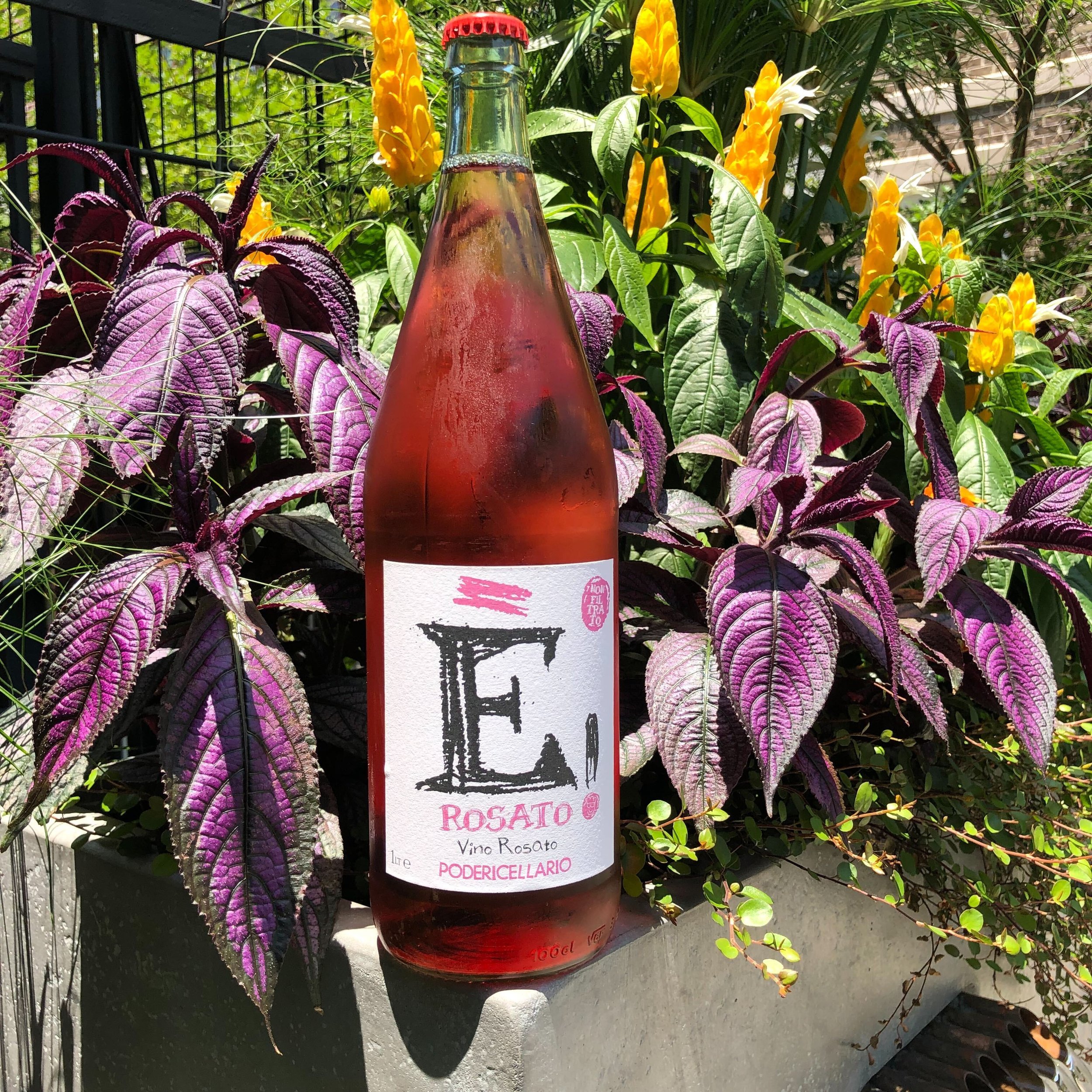Rocket Pop
These rosés made us think of fireworks and bottle rockets because the wines are so vibrant and lively! Taste through this amazing lineup to see which one is your favorite. Featuring natural rosé from Portugal, Spain, California and Italy!
Las Lilas
Grapes: 40% Vinhão, 30% Borraçal and 30% Espadeiro.
Place: Vinho Verde - Portugal
Process: Sustainable farming with very little ploughing in the vineyards to maintain soil cover. Vines are 20 years old and maintained on a traditional trellis
Fermentation occurs naturally in Stainless steel tanks. No chaptalization and acidification at all. The idea is to stay natural as much as possible.
2 months of lees contact contributes to the texture and complexity. The wine is then allowed to settle naturally by gravity and is only minimally fined or filtered.
Family: The Las Lilas vineyards are nestled between the Lima and Vez rivers, in the Vinho Verde wine region of Portugal. Almost half of the 34 acres of vineyards are planted with old vines (> 25 years old). Las Lilas’ winemaker, José Oliveira has been working in the region for almost 20 years.
Literally meaning “green wine,” the Vinho Verde name actually refers to it being a wine that is usually drunk “young.” A cooler climate and granitic soil lead to fresh, light wines with good acidity. Their low alcohol content and slight effervescence make them excellent as an aperitif, or for an afternoon spent in the backyard.
Bottle: $15 | Glass: $6
Ameztoi Rubentis
Grapes: Hondarrabi Zuri, Hondarrabi Beltza
Place: Getariako Txakolina - Spain
Process: After handpicking, hondarrabi zuri and hondarrabi beltza grapes are combined for destemming; the white and red grapes are worked together, not separately. After direct pressing, fermentation with indigenous yeast occurs in stainless steel at 15° C for 20 days. Towards the end of alcoholic fermentation, the tanks are closed to preserve the naturally occurring carbonation, which is the preferred style of Getaria. The tanks are then kept chilled to near freezing before bottling, which preserves the wine’s delicate, effervescent character and signature mousse. These attributes are unattainable through shortcuts such as force-carbonation, which Ameztoi has never employed.
Family: The iconic Ameztoi Rubentis rosé is a field blend of the local, indigenous hondarrabi zuri and hondarrabi beltza varieties, grown on traditional trellises high on the slopes rising above Getaria, an ancient Basque fishing village on Spain’s rugged northern coast. In the 2000s, when almost all of the other local wineries gave up on the indigenous red hondarrabi beltza vines, the Ameztoi family retained their old vines, in turn, lending their rosé such exceptional vibrancy and complexity. Rubentis, the region’s first pink wine, was inspired by the historic claret style wines which were once produced in the area long before the current global craze made rosé famous. The backbone of the blend comes from an old hondarrabi beltza vineyard planted in 1840, preserved by the Ameztoi family for generations. Ameztoi Rubentis is an authentic original, a wine that is often imitated but never replicated.
Bottle: $29 | Glass: $13
Wonderland Ranch
Grapes: 100% Syrah
Place: Marsh Creek (Contra Costa) - California
Process: 100% whole cluster press after foot treading and 2-hours of skin contact. Malolactic fermentation was arrested. Fermented and aged in stainless steel for 4 months prior to bottling unfined.
Family: The Wonderland Project was founded in 2010 by wine broker and former sommelier, Matt Ahern with the help of pedigreed Sonoma grape growers. The Wonderland Project produces Sonoma County Appellation Chardonnay and Pinot Noir from organically farmed vineyards in Carneros. We rely on native yeast fermentations and minimal interventionist methods. We celebrate California.
Bottle: $37 | Glass: $15
Poderi Cellario É Rosato
Grapes: Dolcetto (San Luigi Vineyard) & Nebbiolo (Galli Vineyard).
Place: Piedmont - Italy
Process: Hand-harvested into small bins. Pneumatic direct press. Spontaneous fermentation. Aged in Stainless Steel for 6 to 8 months until bottling. Bottled with minimal sulphur (~10ppm) and without sterile filtering or fining.
Family: Fausto and Cinzia Cellario are 3rd generation winemakers in the village of Carru` on the western outskirts of the Langhe. The family believes in only working with local, indigenous Piemontese grape varieties and fiercely defends local winemaking traditions both in the vineyard work and the cellar practices. The Cellario vineyard holdings cover some 30 ha between 5 different vineyard sites covering the southern Langhe. With holdings in Novello and Monforte, the Dogliani plot is arguably the family’s most prestigious land and I would consider them Dolcetto specialists. Vineyard work is organic (soon to be certified) and all the fermentation take place with indigenous yeasts. Sulfur is only added in tiny quantities at bottling if necessary (a practice not common with a winery in this mid-size range).
Bottle: $27 | Glass: $12





